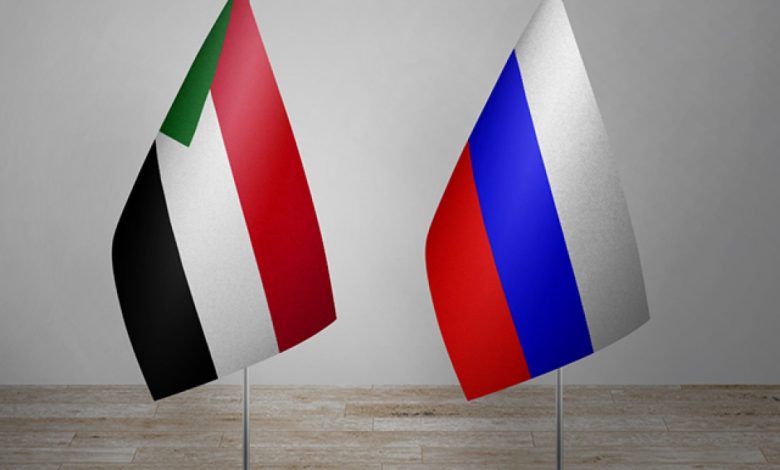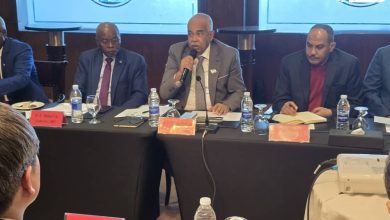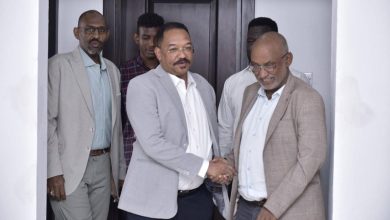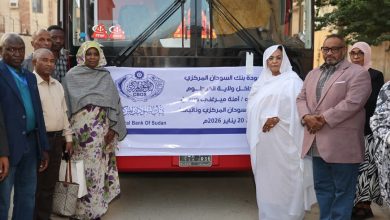Economic
The Sudanese-Russian Economic Cooperation: A Mutual Exchange of Benefits

Report by: Rehab Abdullah
Considering the current circumstances, Russia has made a decisive move to engage in economic cooperation with Sudan. This has become evident with the frequent visits of Russian delegations to Sudan. In August, a high-level delegation from the Russian Central Bank held talks with the Central Bank of Sudan, which, according to several economic experts and observers, could open the door to cooperation between the two countries. Additionally, in September, a delegation representing the Russian Chamber of Commerce and Industry, led by Viktor Chemodanov, Chairman of the Russian-Sudanese Business Council, along with Russia’s Ambassador to Sudan, visited the country. They held multiple discussions, including a meeting with the Minister of Minerals, Mohamed Abdullah Abu Numu, and the Minister of Finance, alongside the Federation of Sudanese Employers.
Strategic Relationship
Sudan’s Minister of Finance and Economic Planning, Dr. Jibril Ibrahim, pledged to work on developing Sudan’s relations with Russia, especially as the country nears victory over its enemies. During a meeting with a Russian business delegation, attended by Sudanese Union Chairman Yasser Al-Jumaiabi, he expressed that Sudan has broad fields for cooperation with Russia. He was pleased to establish strategic partnerships beneficial to all parties and welcomed the Russian delegation during this exceptional time. Al-Jumaiabi added, “True friends stand by each other in times of need,” and hinted at future joint efforts that would further strengthen this relationship.
Dr. Jibril emphasized that Sudan did not approach Russia out of desperation but out of a desire for a mutually beneficial strategic relationship. He added that during his recent visit to Russia, as part of a Sudanese delegation, they found Russia’s leadership to be highly effective. He remarked on a significant meeting with President Putin, who demonstrated an exceptional ability to manage both internal and external affairs with great knowledge and leadership.
Logistical Support
Economic expert Dr. Adel Al-Faki pointed out that Russia requested Sudan to provide a logistical supply route for its ships passing through the Red Sea, to which Sudan has preliminarily agreed, considering it a sovereign decision.
Trade Volume
According to Dr. Al-Faki, Sudan should focus on its trade with Russia, which currently does not exceed $110 million annually. In contrast, Russian exports globally amount to $640 billion. He hopes that Russia will offer Sudan a commodity loan, providing essential supplies such as petroleum, wheat, flour, and fertilizers, to be repaid over 10-15 years with at least a two-year grace period. This, he said, would help stabilize the Sudanese currency and boost government revenues.
Changing Export Structure
Economic advisor Dr. Abubakr Al-Tijani highlighted the benefits of Russian investments for Sudan’s economy. He noted that Russia, due to its frozen lands during the winter, needs to import large quantities of food, which Sudan is rich in. He argued that if Russian investments focused on manufacturing these materials, it would greatly benefit the Sudanese economy by adding much-needed value to exports. However, he cautioned against the over-exploitation of Sudan’s natural resources if Russian investments concentrate on raw food and livestock exports.
Dr. Al-Tijani also emphasized Sudan’s potential to benefit from Russia’s expertise in oil, gas, and related industries. He pointed out that despite Russia’s involvement in the war in Ukraine, its economy is still growing at a rate of at least 5% annually.
Caution in Agreements
Meanwhile, economic expert Dr. Omar Mahjoub stressed the need for Sudan to open up economically to all nations, though he acknowledged that Sudan’s engagement with Russia began in 2013 with little progress until now. He called the current developments a step in the right direction but urged caution in the agreements made with Russia. He emphasized the importance of strategic alliances rather than short-term gains, considering Russia’s investments in Africa and its cancellation of $20 billion in debt for several African nations.
Mahjoub also noted Russia’s interest in Sudan’s oil, gas, and mining sectors. However, he urged Sudan to be careful when negotiating agreements, as Russia is primarily concerned with its own interests.



